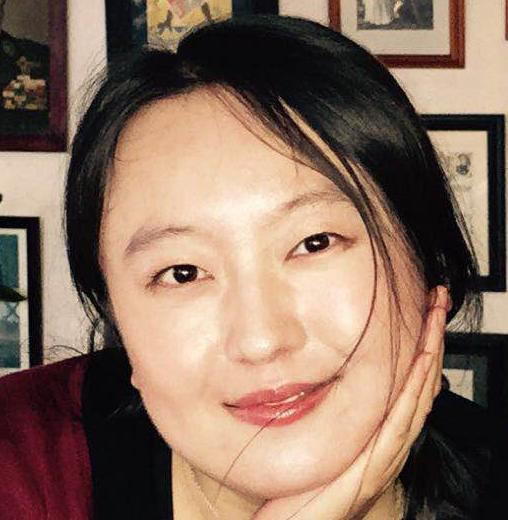China’s State Council’s approval of the Wenzhou Comprehensive Financial Reform pilot zone on March 28 marks a breakthrough in both private lending and private out-bound investment. Although details of its regulations are still in the making, the general trend is already set. The most significant point of this policy is the opening up of individual out-bound direct investment.
Before discussing this point, we need to have a clear understanding of what’s involved in the Wenzhou Financial Reform concept. As a centre of China's vast private capital resources, Wenzhou private capital is estimated to be at least ¥600 billion and returning an annual growth rate of 14%. Some estimates have already put it at ¥1 trillion. It cannot get access to the mainstream banking sector, and has to find outlets for investment and returns. Wenzhou private capital has been drifting about in the country for years. It used to have three outlets. First, the property market: but as investors don't need so many apartments for their own living, the properties are usually for speculation and profit-making, thus promoting real estate bubbles. Second, the stock market: also for profit-making and often resulting in capital market bubbles. Third, the coal-mining sector: often leading to poor management and accidents. Thus, it is imperative to lead this capital to the banking sector.
On the other hand, a tremendous amount of small businesses, mostly private, can hardly get bank loans. As the sector is still highly dominated by state owned banks, the latter tend to lend to SOEs for secure returns. The state-owned banks never worry about expanding their client base because their revenues are well secured by the gap between savings and lending rates, set officially by the central bank. According to the China Banking Regulatory Commission, the five state-owned banks have total revenues of ¥1.7 trillion. Out of that, ¥1.3 trillion, or 77%, is interest income.
Hence the paradox: too much private capital chasing too few investment tools, and too many small businesses chasing too little banking money.
The chief goal of the Wenzhou Financial Reform initiative is to create legal, small-lending companies with private capital for small business. It is envisaged that the number of those companies will reach 30 by the end of 2012 and 100 by the end of 2013, covering all municipal areas and suburban towns.
The creation and growth of private, small lending companies will not only provide money to non-government small business, but also compete with the state-own banks, pushing fundamental reforms in China's banking sector. This is so essential for China's future.
Wenzhou Financial Reform also stipulates that out-bound direct investment can be undertaken by individuals, instead of only legal business entities. Official data from Wenzhou shows that total out-bound direct investment reached US$53.53 million, with U$21.39 million transferred out in foreign exchange. In recent years, over 90% of foreign investment promotion has been oriented to small business and even individuals. If the individuals are eligible to make such investments, the huge local capital resource will find a convenient way out.
Before this new policy, wealthy individuals could only spend their money on travel, luxuries, or children’s education abroad. Also casinos. The annual quota for each individual is only US$50,000 for foreign exchange out-bound transfer. On the other hand, China has accumulated over US$3 trillion in official reserves, by far the world’s largest, and by far not necessary. An important aspect of change is that the largest part of the reserve be held by individuals and businesses, not by the central bank, as occurs in almost all the advanced economies. Individual direct out-bound investment will be a most effective way to achieve this end.
The out-bound investments will be small at the start. Wenzhou will be limited for the first year to a quota of $200 million in total and $3 million per investment. It can be anticipated that this quota will soon be increased. Meanwhile, Shanghai, Tianjin and the Pearl River Delta (Hengqin Island in Zuhai in particular) will soon join in this reform and add a considerable amount to the investment pool. The total number of Chinese rich families with disposable capital of ¥10 million is estimated at 590,000. If half of the families invest half of their disposable capital in out-bound investment, the total volume will be around US$2.38 trillion.
If half of China's current official reserve is used for private investment abroad, the capital resource will be US$1.6 trillion. It will be a significant influence on the world economy.
The out-flow of Chinese individual private capital will undoubtedly serve as additional capital resources for the US, Europe and elsewhere. The mostly likely targets might be foreign property markets, equity markets or other financial investment tools. It is less likely that the money will move into the real economy, and less so into small business. As the wealthy individuals don't have adequate market information and professional expertise, they tend to find individual investment tools. Also, they are still less experienced in managing economic, financial, legal and other risks in a remote marketplace.
The American capital markets and local governments could take this opportunity to attract more Chinese private money. They need to considerably increase the availability of American investment information among Wenzhou’s and China’s wealthy people Various information exchanges and match-making events could be arranged with the assistance of local governments, trade associations in China, and representatives of US Department of Commerce, chambers of commerce, US law firms, etc.
We should not anticipate too much in the early years as investment failures, twists and turns are likely to happen, but we should remain cautiously optimistic as this type of investment is set to boom and the long term prospects look encouraging.
He Weiwen is co-director of China-US/EU Study Center, China Association of International Trade, and former economic and commercial counselor at Chinese Consulates General in San Francisco and New York.


